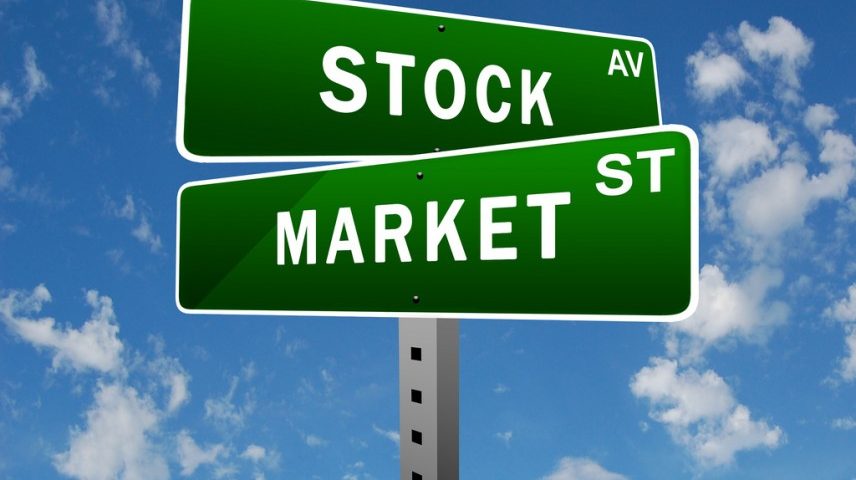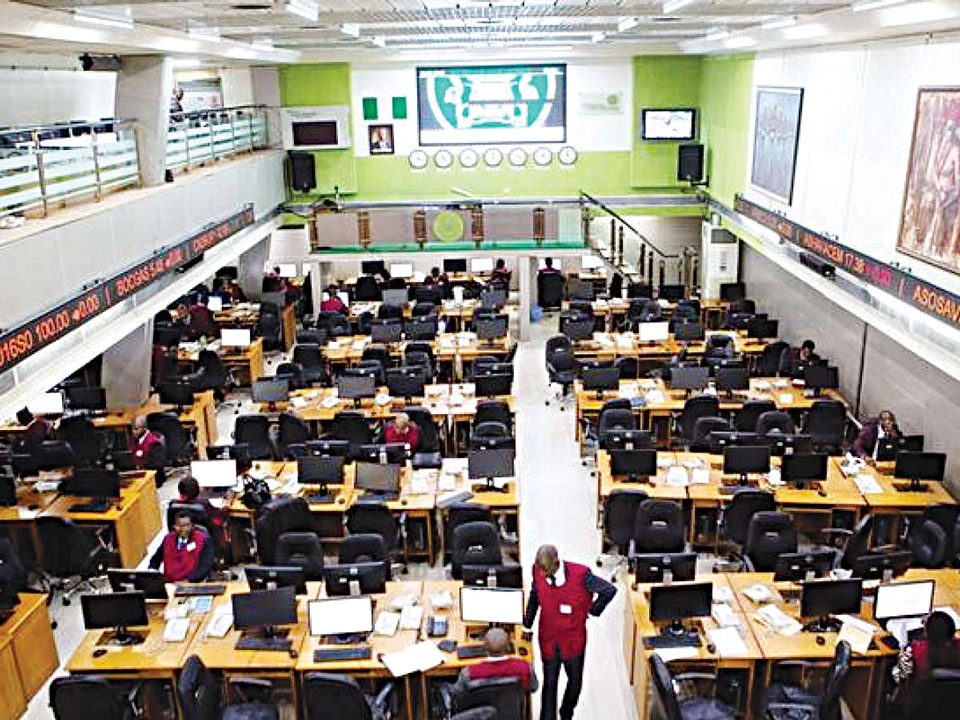World Update: Tokyo, Hong Kong bounce back in mixed day for Asia markets

Nigeria Update: ‘IPOs’ resurgence only option for capital market stability’
March 26, 2018
Article Update: On free trade: three stories
March 26, 2018
Tokyo and Hong Kong recovered from early losses on a mixed day for Asian markets but traders remain on edge over Donald Trump’s controversial tariffs, which had fanned fears of a trade war that could hammer the global economy.
The US move to impose $60 billion in levies on China — claiming the country is breaching intellectual property rights — sparked a rout of equities across the world, while Beijing warned it was “not afraid of a trade war”.
US Treasury Secretary Steve Mnuchin said at the weekend that Trump was not ready to back down but added that he had “very productive conversations” with Chinese officials on the issue.
Trump’s announcement came weeks after he unveiled tariffs on the import of steel and aluminium products as he presses on with his “America First” protectionist programme.
Beijing did not rule out cutting back its purchases of US Treasuries, which are crucial to keep the wheels of the world’s top economy greased. China is the biggest buyer of Treasuries.
Wall Street’s three main indexes tumbled for a second successive day on Friday, and Asian investors — who fled to the hills last week — continued to sell on Monday.
“How China escalates will determine the pace of play, but Chinese retaliation so far has been more genial than initially thought, and they have made efforts for a diplomatic solution,” said Stephen Innes, head of Asia-Pacific trading at OANDA.
“Although China is willing to negotiate and is likely to offer compromises, uncertainty and the fear of escalation will likely hold back market sentiment in the short run.”
Adding to the negative sentiment was news that Trump had installed a hardline hawk, John Bolton, as his national security adviser, stoking geopolitical worries.
‘Room for miscalculation’
All regional markets kicked off the day with another drop but bargain-buying saw some return to positive territory and others pare the losses.
Hong Kong ended up 0.8 percent and Tokyo climbed 0.7 percent, while Seoul edged up 0.8 percent as it emerged that South Korea and the United States have reached an understanding on revising their free-trade agreement and on steel tariffs.
Singapore and Taipei each added 0.2 percent, while Bangkok was also higher.
But Shanghai finished 0.6 percent lower and Sydney gave up 0.5 percent, while Wellington, Manila and Jakarta were also down.
“So far, the initial measures from Trump and China are relatively muted,” said James Cheo, senior investment strategist at Bank of Singapore.
“The bigger impact is whether it escalates. China needs to calibrate its response carefully to cause some discomfort, but without provoking another round of retaliation.
“The room for miscalculation seems to be high, both in terms of provoking Chinese retaliation or taking measures that end up hurting the US economy. The hope is that there is rationality from both parties.”
Fears of a trade war continue to weigh on the dollar, which was stuck below 105 yen — its lowest level since November 2016 when Trump was elected.
The weaker dollar sent oil prices surging Friday as it makes the commodity cheaper for anyone holding other currencies.
Adding upward pressure on oil was speculation that Bolton will press Trump to tear up the Iran nuclear deal, which could spark turmoil in the Middle East.
“Nothing like geopolitics to put a bid back into oil,” said Greg McKenna, chief market strategist at AxiTrader.
Both main contracts dipped in Asia Monday on profit-taking.
China launched yuan-denominated oil futures contracts, marking the first time foreign investors will have access to the assets in the country as the world’s top crude importer seeks greater influence over global prices.
However, analysts said they are unlikely to challenge New York and London-based futures in the short-term owing to Chinese capital controls and the entrenched position of the dollar-denominated contracts.
In early European trade London and Paris each rose 0.2 percent, while Frankfurt was 0.3 percent higher.
Trump’s announcement came weeks after he unveiled tariffs on the import of steel and aluminium products as he presses on with his “America First” protectionist programme.
Beijing did not rule out cutting back its purchases of US Treasuries, which are crucial to keep the wheels of the world’s top economy greased. China is the biggest buyer of Treasuries.
Wall Street’s three main indexes tumbled for a second successive day on Friday, and Asian investors — who fled to the hills last week — continued to sell on Monday.
“How China escalates will determine the pace of play, but Chinese retaliation so far has been more genial than initially thought, and they have made efforts for a diplomatic solution,” said Stephen Innes, head of Asia-Pacific trading at OANDA.
“Although China is willing to negotiate and is likely to offer compromises, uncertainty and the fear of escalation will likely hold back market sentiment in the short run.”
Adding to the negative sentiment was news that Trump had installed a hardline hawk, John Bolton, as his national security adviser, stoking geopolitical worries.
‘Room for miscalculation’
All regional markets kicked off the day with another drop but bargain-buying saw some return to positive territory and others pare the losses.
Hong Kong ended up 0.8 percent and Tokyo climbed 0.7 percent, while Seoul edged up 0.8 percent as it emerged that South Korea and the United States have reached an understanding on revising their free-trade agreement and on steel tariffs.
Singapore and Taipei each added 0.2 percent, while Bangkok was also higher.
But Shanghai finished 0.6 percent lower and Sydney gave up 0.5 percent, while Wellington, Manila and Jakarta were also down.
“So far, the initial measures from Trump and China are relatively muted,” said James Cheo, senior investment strategist at Bank of Singapore.
“The bigger impact is whether it escalates. China needs to calibrate its response carefully to cause some discomfort, but without provoking another round of retaliation.
“The room for miscalculation seems to be high, both in terms of provoking Chinese retaliation or taking measures that end up hurting the US economy. The hope is that there is rationality from both parties.”
Fears of a trade war continue to weigh on the dollar, which was stuck below 105 yen — its lowest level since November 2016 when Trump was elected.
The weaker dollar sent oil prices surging Friday as it makes the commodity cheaper for anyone holding other currencies.
Adding upward pressure on oil was speculation that Bolton will press Trump to tear up the Iran nuclear deal, which could spark turmoil in the Middle East.
“Nothing like geopolitics to put a bid back into oil,” said Greg McKenna, chief market strategist at AxiTrader.
Both main contracts dipped in Asia Monday on profit-taking.
China launched yuan-denominated oil futures contracts, marking the first time foreign investors will have access to the assets in the country as the world’s top crude importer seeks greater influence over global prices.
However, analysts said they are unlikely to challenge New York and London-based futures in the short-term owing to Chinese capital controls and the entrenched position of the dollar-denominated contracts.
In early European trade London and Paris each rose 0.2 percent, while Frankfurt was 0.3 percent higher.
– Key figures around 0810 GMT –
Tokyo – Nikkei 225: UP 0.7 percent at 20,766.10 (close)
Hong Kong – Hang Seng: UP 0.8 percent at 30,548.77 (close)
Shanghai – Composite: DOWN 0.6 percent at 3,133.72 (close)
London – FTSE 100: UP 0.2 percent at 6,934.60
Dollar/yen: UP at 104.98 yen from 104.78 yen at 2100 GMT Friday
Euro/dollar: UP at $1.2365 from $1.2357 at 2100 GMT
Pound/dollar: UP at $1.4160 from $1.4136
Oil – West Texas Intermediate: DOWN 28 cents at $65.60
Oil – Brent North Sea: DOWN 17 cents at $70.28 per barrel
New York – Dow: DOWN 1.8 percent at 23,533.20 (close)

